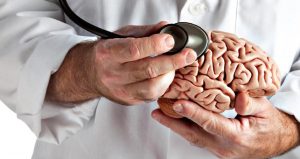It’s Not Just a Bump on the Head – The Importance of Concussion Management
 This blog was written by Rachel Rand, PT, DPT.
This blog was written by Rachel Rand, PT, DPT.
The management of concussion is a constantly evolving topic. Thankfully, in the last several years, there has been more focus than ever before on how to effectively identify and manage concussions, thanks to ongoing research regarding the long term effects of multiple concussions. As a result, there has been a major change in the way healthcare professionals manage this complicated disorder.
An alarming 3.8 million Americans are diagnosed with a concussion each year according to the CDC; however, the actual number of concussions sustained each year is thought to be much higher due to under-reporting. While there is now more awareness of the potential dangers that can result from a poorly managed concussion, most people don’t fully understand what it means to have a concussion due to the varied clinical presentations.
Concussion is defined as a traumatically induced transient disturbance of brain function and involves a complex pathophysiological process. Concussions typically result from a blow to the head; however, in some instances, a blow to another body part will cause the brain to crash into the skull, indirectly causing a concussion. While some people recover from a concussion within a few days, others take months or years to return to their career or sport. When the symptoms of a concussion last longer than three weeks, it is called post-concussion syndrome. Recovering from post-concussion syndrome often requires help from a team of teachers, doctors, athletic trainers, physical and occupational therapists, speech therapists, and psychologists to name a few.
Symptoms of concussions may be physical, cognitive and/or emotional. These include, but are not limited to, headaches, dizziness, sensitivity to light/noise, fatigue, depression, and anxiety. Some people may only have one or two of these symptoms while others may feel limited by multiple symptoms. Unfortunately, the symptoms of concussion can affect your ability to perform to work or school tasks, participate in sports, and can often affect your relationships with others.
At Bon Secours Physical Therapy, patients who have been diagnosed with a concussion are evaluated by a physical therapist to assess limitations, given an individualized plan including a home exercise program, and provided education. Treatment may consist of vestibular rehabilitation (to address dizziness), visual exercises (to address blurred vision and difficulty reading), manual intervention and therapeutic exercise (to address neck pain), and/or graded exercise program (to return to work or sport).
When recovering from a concussion, physical and mental rest are very important. Often, individuals try to return to work, school or sports too soon and suffer setbacks as a result. Once you have sustained one concussion, you are more at risk for suffering another concussion, which can lead to long term deficits. Your doctor and other health professionals can help you determine when it is safe to resume your regular activities.
